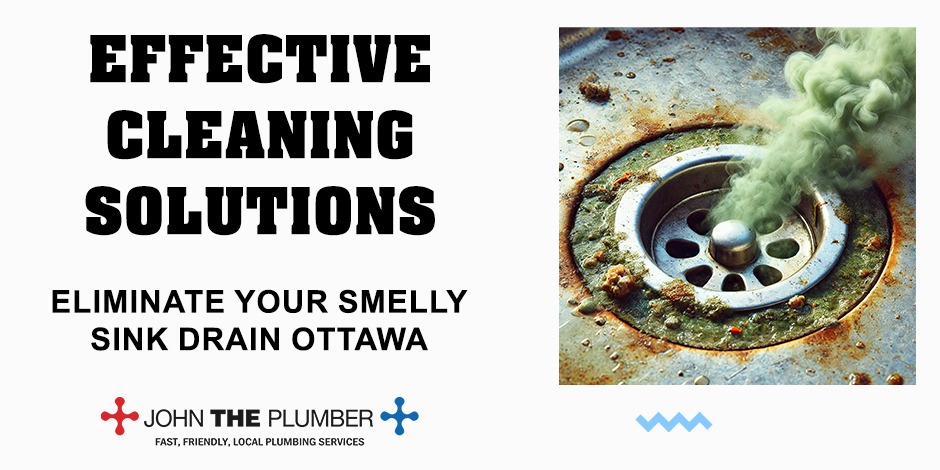How to Clean a Smelly Sink Drain and Keep Your Ottawa Home Fresh
You walk into your kitchen or bathroom and are immediately greeted by an unpleasant smell. Is it the trash? No, that’s not it. Did the dog have an accident? No, not this time.
Finally, you locate the source — the kitchen sink. You turn on the faucet and maybe even run the garbage disposal if you have one, but the odour doesn’t budge. It’s official: you have a stinky drain.
Fortunately, with a bit of investigation, cleaning, and regular maintenance, you can eliminate the odour and keep your drains smelling fresh.
What Causes a Smelly Sink Drain?
Sinks are notorious for developing unpleasant smells, and for good reason. Over time, a combination of factors can lead to odours wafting up from your pipes. Here are the most common causes:
Gunk and bacteria:
Clogged vent pipes
Sewer gases
Plumbing errors
Missing traps or vents, leaks, or rotting drain pipes can all lead to odours escaping from your sink. These errors can also result in a smelly drain.
Identifying the Source of the Odour
Identifying the source of the odour is crucial in eliminating smelly sink drains. Start by checking the sink drain for any visible debris or food particles that might be causing the unpleasant smell. Often, food particles and grease can accumulate in the drain, leading to blockages and odours.
If you have a garbage disposal, it can also be a common culprit for smelly sink drains. Make sure to inspect it for any trapped food particles or buildup.
If the odour persists after a visual inspection, it might be necessary to use a drain snake or plumber’s auger to remove any deeper blockages. These tools can help you reach and clear out any debris that’s stuck further down the pipes, ensuring a thorough cleaning.
By identifying and addressing the source of the odour, you can effectively eliminate smelly sink drains and keep your kitchen and bathroom fresh.
Before tackling your smelly sink drain, gather these supplies:
- Near-boiling water or white vinegar
- Baking soda
- Rubber gloves
- Wrench
- Bucket
- Hose
- Ladder
- Enzyme-based drain cleaners (effective in breaking down organic matter)
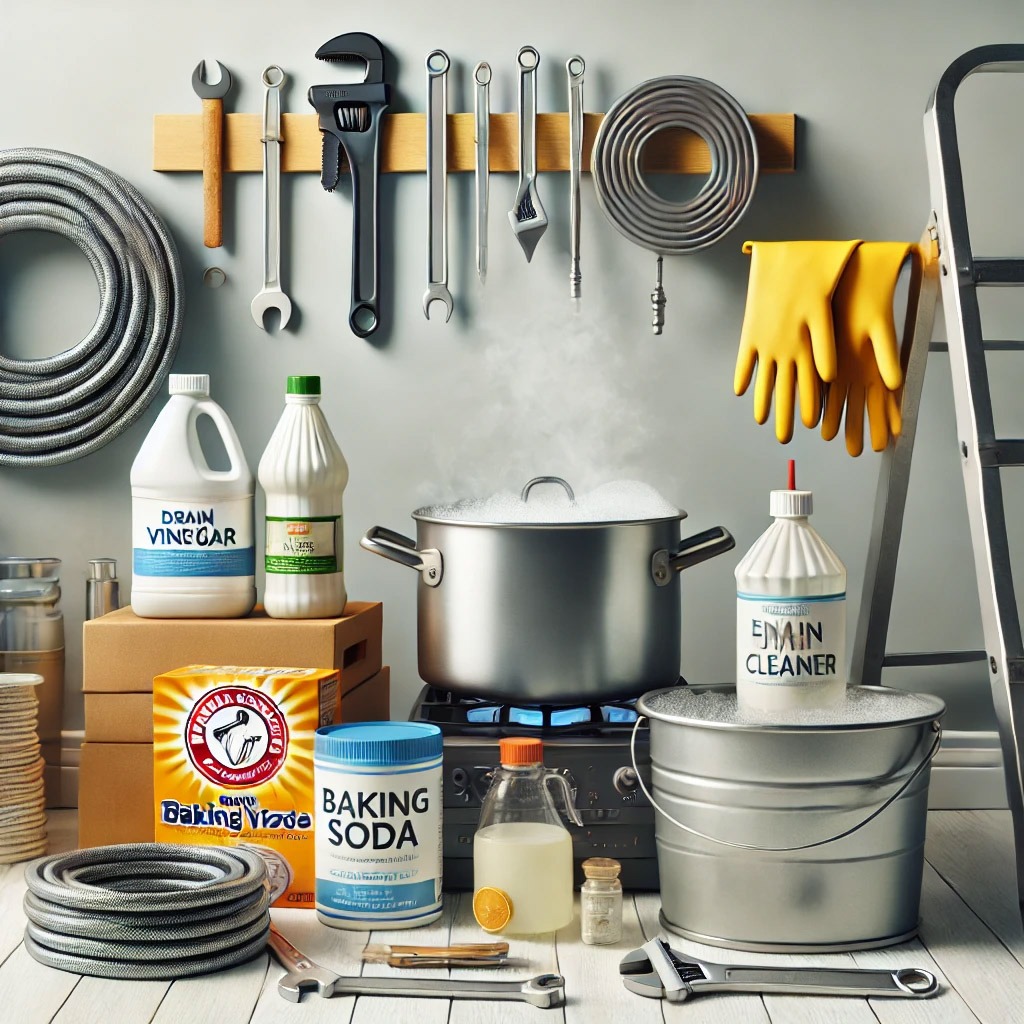
How to Clean a Stinky Drain
1. Pour Boiling Water or Vinegar Down the Drain
- Bring a pot of water or white vinegar to just below boiling.
- Pour half of it slowly down the kitchen sink drain.
- Wait a few minutes, then run cold water to solidify any grease or debris.
- Follow with the remaining hot liquid to flush the pipe thoroughly.
This simple step often works wonders for minor odours caused by grease or soap scum.
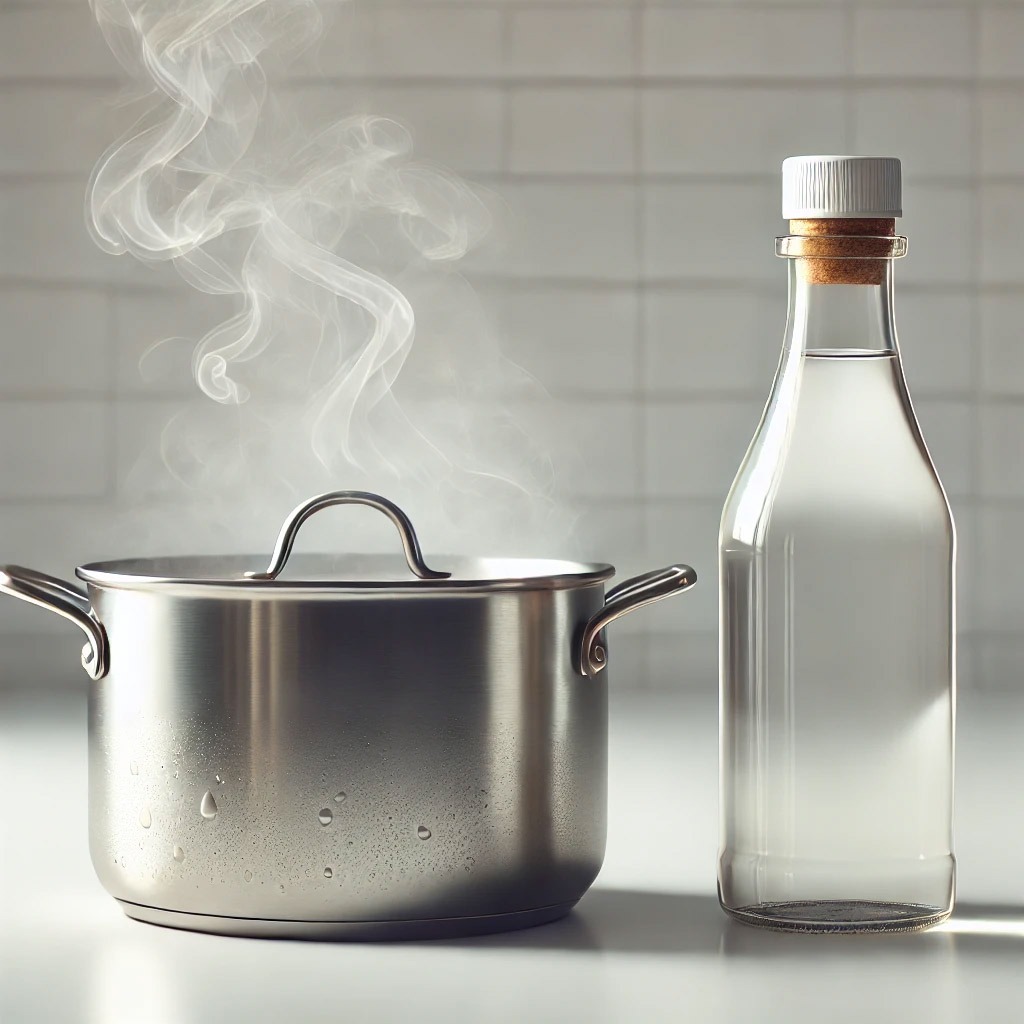
2. Use Vinegar and Baking Soda
- Run hot tap water for several seconds, then turn it off.
- Dump one cup of baking soda into the drain.
- Follow this with two cups of hot white vinegar.
- Let the mixture fizz and sit for about an hour.
- Flush the drain with hot tap water to remove loosened debris.
This method is particularly effective for deodorizing smelly kitchen drains and bathroom sinks alike using vinegar and baking soda.
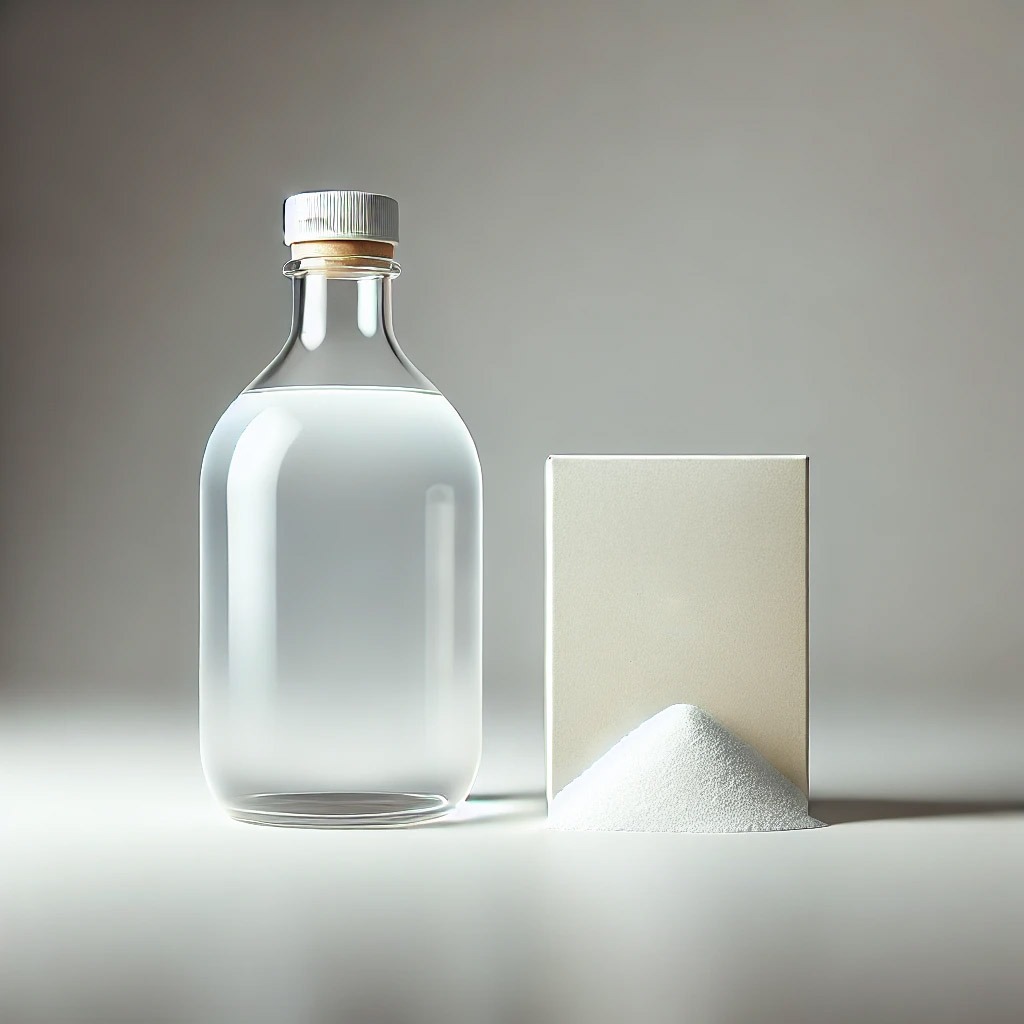
3. Clean the P-Trap
- Put on rubber gloves and place a bucket under the P-trap (the curved pipe beneath the sink).
- Use a wrench to unscrew the connections and remove the trap.
- Empty any water and debris from the trap into the bucket.
- Take the P-trap outside and rinse it thoroughly with a garden hose.
- Reassemble the plumbing before running water through the sink again.
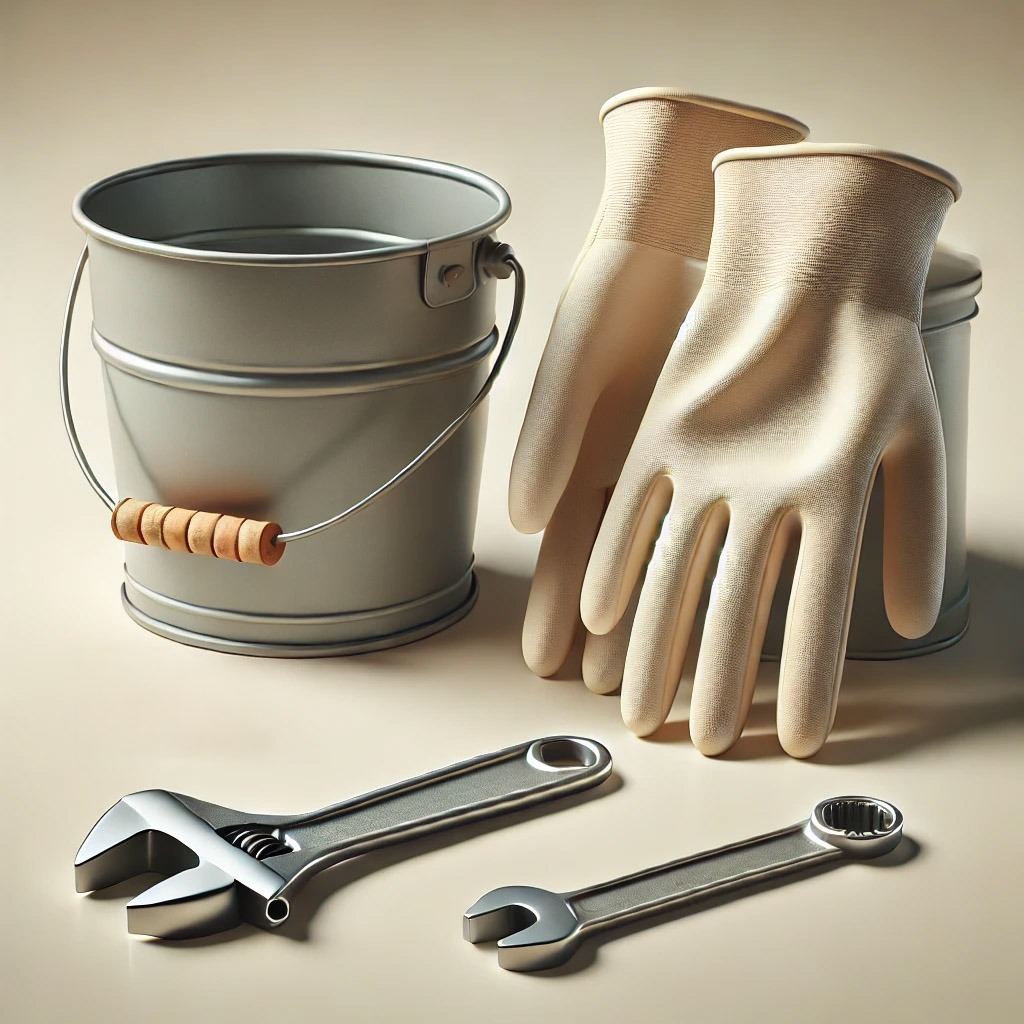
A clean P-trap can resolve many stinky sink drain problems, especially in the bathroom, kitchen, or shower drain.
4. Clear the Drain Vent
If odours persist, your vent pipes may be clogged, allowing sewer gasses to escape into your home. In most homes, all drain vents terminate in a single opening on the roof.
- Use a ladder to climb up to the roof.
- Inspect the vent for leaves or debris and remove anything blocking airflow.
- If the blockage is deeper in the vent, you may need to contact a plumbing professional.

Cleaning the Garbage Disposal
Cleaning the garbage disposal is an essential step in eliminating smelly sink drains. Start by pouring 1/2 cup of baking soda down the drain, followed by 1 cup of white vinegar.
This combination will create a fizzing reaction that helps break down any food particles and debris causing the odour. Let the mixture sit for 10-15 minutes to ensure it has enough time to work its magic.
After the waiting period, rinse the disposal with hot tap water to flush away the loosened debris. For an extra cleaning boost, you can run a few ice cubes through the disposal.
The ice helps to dislodge any remaining particles and leaves the disposal smelling fresh. Regularly cleaning your garbage disposal with these simple steps can prevent smelly sink drains and maintain a pleasant kitchen environment.
How to Fix Stinky Drains for Good
Preventative measures can save you the headache of dealing with smelly drains in the future, especially in kitchen sinks. Here’s how:
Run your garbage disposal properly
Always run cold water while using the disposal and let it run for at least 20 seconds after disposing of food.
Flush with near-boiling water weekly
Pour a gallon of near-boiling water down each sink once a week to dissolve grease and soap scum.
Use infrequently used sinks occasionally
If you have sinks you rarely use, run water through them every few weeks to keep the P-trap full. Adding a small amount of mineral oil to the drain can slow water evaporation.
Preventative Measures
Preventative measures can help maintain a fresh drain and prevent smelly sink drains. Regularly cleaning the sink drain and garbage disposal is key to avoiding the buildup of food particles and debris.
One effective method is to sprinkle baking soda down the drain periodically. Baking soda acts as a natural deodorizer, helping to keep the drain smelling fresh.
Using a drain screen or filter can also be beneficial. These tools catch food particles and debris before they enter the drain, preventing blockages and odours.
Additionally, avoid pouring grease and food particles down the drain, as these substances can cause significant blockages and unpleasant smells. By incorporating these preventative measures into your routine, you can keep your sink drains clean and odour-free.
Professional Drain Cleaning in Ottawa
If you’ve tried all these methods and the odour persists, it might be time to call in the experts. At John The Plumber Ottawa, we specialize in professional drain cleaning to tackle even the toughest odours and clogs.
Our experienced team uses advanced tools and techniques to restore your plumbing to peak condition. Whether it’s a stinky drain in your kitchen or smelly shower drains, we’re here to help.
When to Call a Professional
If the odour persists after trying the above methods, it may be necessary to call a professional plumber. Persistent odours can indicate a more serious issue, such as a blockage or buildup in the pipes that require specialized equipment to remove. A professional plumber can help identify the source of the odour and provide a solution to eliminate it.
In some cases, the odour may be caused by sewer gases escaping into your home. This can be a complex issue that requires a professional inspection of the sewer lines to identify and resolve the problem.
If you’re dealing with persistent or severe odours, don’t hesitate to contact a professional plumber. Their expertise and advanced tools can ensure your plumbing system is in top condition, keeping your home fresh and odour-free.
Why Choose John The Plumber Ottawa?
- Fast and reliable service: We understand how disruptive plumbing issues can be, and we’re committed to providing quick, effective solutions.
- Expert plumbers: Our licensed emergency plumbers have years of experience diagnosing and resolving all types of plumbing problems, including smelly drain issues.
- Affordable pricing: Quality plumbing services and pipe repairs don’t have to break the bank. We offer competitive rates and transparent pricing.
- 30-day guarantee on drain cleaning: We stand by the quality of our work. That’s why we offer a 30-day guarantee on our drain cleaning services to ensure your satisfaction and peace of mind.
Don’t let a smelly sink drain and plumbing stack disrupt your home. Contact John The Plumber Ottawa today for professional, hassle-free service.
FAQs
Can a plumber fix a smelly drain?
Yes, plumbers can fix smelly drains by clearing clogs, cleaning pipes, and addressing plumbing issues like venting or P-trap problems.
Can I pour bleach down the sink to get rid of the smell?
Yes, but only in small amounts and diluted. A safer option is baking soda and vinegar to avoid pipe damage.
What is the best deodorizer for a sink drain?
Baking soda and vinegar are effective natural deodorizers. Enzyme-based cleaners are also great for persistent odours.
What is the best deodorizer for a sink drain?
Baking soda and vinegar are effective natural deodorizers. Enzyme-based cleaners are also great for persistent odours.
How do you get the smell out of a sink drain?
Pour boiling water, then baking soda and vinegar into the drain. Rinse after 15 minutes. Clean the P-trap if needed.
Why is there a nasty smell coming from my drains?
The smell is usually caused by grease, food buildup, or a dry P-trap, allowing sewer gases to escape.
How do I stop my drains from smelling like rotten eggs?
Flush with hot water and baking soda/vinegar. Keep the P-trap full by running water regularly. Call a plumber if the smell persists.



